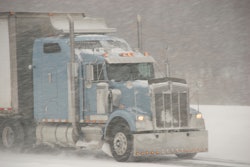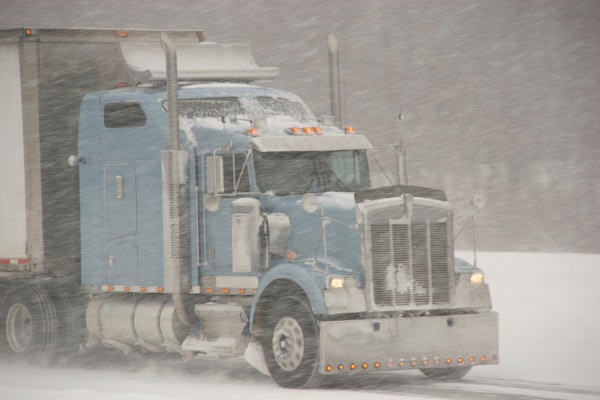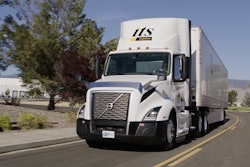The state of California and its Air Resources Board (CARB) on Tuesday, January 14, withdrew its request for Environmental Protection Agency waivers that would have allowed the state to enact emissions limits that exceed federal standards as the sun sets on President Joe Biden's administration. The Biden White House had been an ally in the state's fight for some of the world's most stringent air quality regulations.
"While we are disappointed that U.S. EPA was unable to act on all the requests in time, the withdrawal is an important step given the uncertainty presented by the incoming administration that previously attacked California’s programs to protect public health and the climate and has said will continue to oppose those programs," California Air Resources Board Chair Liane Randolph told Overdrive sister publication CCJ via emailed statement.
Had a Biden-led White House granted the ACF waiver, as it has others, some watchers felt it would be revoked under the next administration of President-elect Donald Trump, who will be sworn into office Monday, January 20. Lee Zeldin, Trump's nominee to lead the Environmental Protection Agency (EPA), had previously pledged to prioritize efforts to "roll back regulations" that he sees impeding American business.

California in November 2023 submitted its Advanced Clean Fleets (ACF) request to the EPA, which would have required trucking companies of size and drayage operations in the state to transition to zero-emission vehicles beginning last year, with entire fleets to be fully ZEV between 2035 and 2042, depending on a variety of factors. ACF would also have required all new heavy trucks sold in California be ZEVs by 2036.
Responding to news of the waiver, the California-headquartered Western States Trucking Association, the first to file litigation against the ACF in the state, noted in a statement to members that "we are pleased at this development at a time California is facing crisis that clearly illustrates the importance of heavy-duty vehicles -- especially ultra clean diesel-powered trucks -- in helping protect our communities and ultimately to begin the massive recovery efforts."
WSTA clearly referenced ongoing wildfires devastating parts of Southern California in and around Los Angeles. "This was not the time to try and push through a rule designed to transform the industry to meet the desires of a small segment of the population, especially considering many of the burn areas have been without electricity for a least a week, and do not have charging facilities to handle all the trucks."
Virtually all trucking associations nationally have come out in opposition to the ACF and its companion rule, the Advanced Clean Trucks (ACT) regulation that does have a waiver from the U.S. EPA, and subjected it to many legal challenges, including a federal court case led by the WSTA (Western States Trucking Association, et al v. U.S. EPA). The few industry participants who pledged support of EPA granting a waiver for the ACF noted its virtual necessity for building a market for ZEV heavy trucks.
[Related: Truckers to EPA: Send CARB 'back to the drawing board' for its ZEV truck-purchase mandates]
“We welcome this update and look forward to working with the new administration on commonsense environmental policies that allow small business truckers to remain viable and not forced out of business in the regulatory juggernaut," said Todd Spencer, President of Owner-Operator Independent Drivers Association.
“The trucking industry and American consumers can breathe a collective sigh of relief today after CARB finally bowed to reality and shelved its job-killing Advanced Clean Fleets regulation," said American Trucking Associations President and CEO Chris Spear said via statement sent to CCJ. "This unachievable mandate would have raised costs and caused disruption throughout our supply chain without delivering the promised environmental benefits."
Eric Sauer, CEO of the California Trucking Association, added his agency has consistently stated the Advanced Clean Fleets rule was unachievable and looks forward "to engaging all stakeholders, including CARB and EPA, to continue the trucking industry's efforts to further reduce emissions in a technologically feasible and cost-effective manner that preserves our State and the Nation's critical supply chain."
Without the waiver, ACF never really got off the ground. CARB agreed not to enforce the reporting or registration requirements of the ACF in 2024 as it applied to high priority fleets and drayage until a waiver determination was issued by EPA, instead allowing fleets to voluntarily report and apply for flexibility provisions.
CARB’s ACF rule had been under fire in court from groups as diverse as the CTA, WSTA, the American Free Enterprise Chamber of Commerce, and a coalition of 17 states and the Nebraska Trucking Association.
Jim Mullen, executive director of the Clean Freight Coalition (CFC), an alliance of transportation stakeholders committed to a clean energy future for the commercial vehicle industry, noted his group has "consistently argued that the ACF and its unattainable criteria are regulatory overreach and just plain bad policy."
Adding that CFC and the organizations that its members represent are committed to the mission of reducing the trucking industry’s emission footprint, Mullen said the progress that the industry has achieved in manufacturing and operating cleaner trucks to date is significant, and the industry stakeholders represented by the CFC will continue their “all of the above” approach to cleaner fuels and an environmentally friendly industry. --Jason Cannon contributed primary reporting, with Todd Dills supporting
What's next for CARB and the other waivers requested from the Biden EPA that remain outstanding? Read CCJ Editor Jason's Cannon's full report via this link.








